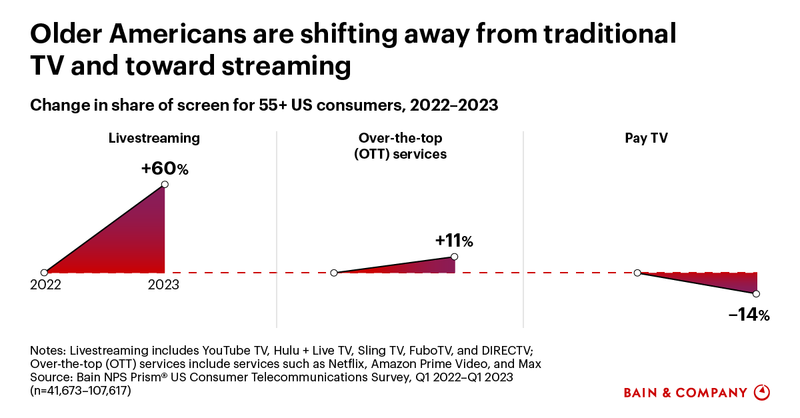Generations have evolved, but some habits from the Boomer era linger on, often puzzling the younger cohorts. While every generation has its quirks, a handful of these habits are seen as outdated or even counterproductive in modern society. The forthcoming list critiques 23 such habits, offering insight into why they persist and why they might need to be reconsidered. Our aim is to provide a conversational and engaging exploration of these habits, shedding light on how they’ve managed to endure and why the time has come for some to change.
1. Using Paper Maps
Despite the technological advancements, some Boomers still prefer paper maps over GPS. Navigating through a giant, foldable map in the car may seem like an adventurous throwback to a bygone era. However, this practice can be cumbersome and less efficient. While the tactile feel of paper and the satisfaction of planning a route manually are understandable, GPS offers real-time updates and alternate routes. For the modern traveler, embracing technology ensures a smoother, faster journey. Encouraging Boomers to try digital maps can bridge the generational tech gap and lead to safer trips.
2. Clinging to Landlines
The nostalgic ring of a landline phone is something Boomers cherish. However, clinging to landlines in an era dominated by mobile phones can be limiting. Landlines tie users to a specific location, lacking the convenience of mobile communication. While the clarity and reliability of a landline call are appreciated, cell phones offer a multitude of features like texting, apps, and internet access. Transitioning to mobile phones can unlock a new world of connectivity. Encouraging an open-minded approach to technology can diminish the dependence on obsolete communication methods.
3. Avoiding Online Banking
Online banking offers unparalleled convenience, yet some Boomers hesitate to embrace it. The preference for in-person banking and writing checks is rooted in habit and perceived security. However, digital banking provides 24/7 access to accounts, efficient transaction handling, and robust security measures. The reluctance to adopt online banking can result in unnecessary trips to the bank and added paperwork. Educating Boomers on digital security can ease their transition to online banking, saving time and effort while ensuring their financial safety.
4. Resisting Email Communication
For many Boomers, writing letters holds sentimental value, a practice rooted in their formative years. Yet, in an era where email dominates communication, resisting digital correspondence can lead to delays and missed opportunities. Embracing email not only streamlines communication but also offers instant connectivity, saving time. While handwritten notes have their charm, the practicality of email is undeniable. Encouraging Boomers to embrace this technology can enhance their connectivity and simplify both personal and professional interactions.
5. Overusing Plastic Bags
Plastic bags have long been a staple for Boomers, yet their environmental impact is undeniable. Overuse contributes to pollution and waste, countering global sustainability efforts. Embracing reusable bags is a simple yet effective way to reduce one’s carbon footprint. While change can be difficult, adopting eco-friendly practices offers substantial benefits. Encouraging Boomers to switch to reusable bags not only supports environmental efforts but can also set a positive example for future generations, fostering a culture of sustainability.
6. Preferring Face-to-Face Meetings
Boomers often favor face-to-face meetings, valuing personal interaction and the nuance of in-person communication. However, with remote work becoming increasingly prevalent, flexibility in communication is essential. Virtual meetings offer convenience, cost savings, and time efficiency. Embracing technology can enhance productivity and broaden communication options. Encouraging Boomers to integrate virtual meetings into their routine can lead to a more adaptable approach to business interactions, aligning with modern work trends and reducing travel-related stress.
7. Rejecting Social Media
Social media can be overwhelming for Boomers, often perceived as a platform for younger generations. However, it offers a unique avenue for staying connected with family and friends. Rejecting social media can lead to missed opportunities for engagement and information sharing. While privacy concerns are valid, cautious use can mitigate risks. Encouraging Boomers to explore social media can enhance their social life and provide a channel for sharing experiences. Embracing these platforms can foster a sense of community and keep them connected in the digital age.
8. Hoarding Unnecessary Items
Hoarding is often a result of sentimental attachment and the ‘just in case’ mentality prevalent among Boomers. While nostalgia plays a role, excessive accumulation can lead to clutter and reduced living spaces. Simplifying one’s environment by decluttering can improve mental health and create a more functional living space. Encouraging Boomers to evaluate the necessity of items can lead to a more organized and stress-free lifestyle. A mindset shift towards minimalism can aid in letting go of the unnecessary, allowing for a fresher, cleaner home environment.
9. Reluctance to Downsize
Many Boomers hold onto large homes long after their children have moved out, driven by memories and the notion of ‘space for family visits.’ However, maintaining a large house can be financially and physically taxing. Downsizing to a more manageable space can free up resources and reduce the burden of upkeep. While the emotional ties to a family home are strong, embracing change can lead to a more comfortable and practical lifestyle. Encouraging Boomers to consider downsizing aligns with the desire for simplicity and convenience in their later years.
10. Reliance on Cable TV
Cable TV has been a staple in many Boomer households for decades. However, with the rise of streaming services, there’s a plethora of content available at users’ fingertips. Reliance on cable can limit viewing options and incur higher costs. Embracing streaming services offers flexibility, personalized content, and often lower expenses. Encouraging Boomers to explore these digital platforms can enrich their entertainment experience. Transitioning away from cable can also simplify billing and offer a broader range of shows and movies suited to individual tastes.
11. Avoiding Text Messaging
Boomers often prefer direct phone calls over text messaging, valuing voice communication. However, avoiding texts can lead to missed quick exchanges and informal updates. Texting offers a convenient, concise way to communicate, bridging distance and time. While it may seem impersonal, it provides a straightforward method for sharing information. Encouraging Boomers to embrace texting can enhance their communication repertoire, making interactions with younger generations more fluid. It’s about adding another tool to their communication kit, adapting to a fast-paced digital world.
12. Disregarding Digital Privacy
For many Boomers, digital privacy isn’t a primary concern, often underestimated or overlooked. However, in today’s digital age, safeguarding personal information is crucial. Disregarding digital privacy can lead to identity theft and data breaches. Educating Boomers on the importance of secure passwords, privacy settings, and antivirus software is essential. Encouraging them to adopt digital safety habits can protect their information and provide peace of mind. It’s about fostering awareness and understanding the significance of privacy in an interconnected world.
13. Listening to Voicemail
Voicemail was once the pinnacle of missed call management, cherished by Boomers for its personal touch. Yet, in an era dominated by instant communication, listening to voicemails can be time-consuming. Texts and email provide quicker, more efficient alternatives. While the nostalgia of hearing a familiar voice is undeniable, embracing modern communication tools can save time and streamline interactions. Encouraging Boomers to adopt text and email for concise communication reflects a shift towards efficiency, aligning with contemporary communication practices.
14. Ignoring Fitness Tech
Fitness technology offers a plethora of benefits for health monitoring, yet some Boomers remain skeptical or unaware. Ignoring fitness tech means missing out on personalized health insights and goal setting. Devices like fitness trackers provide motivation, track progress, and support healthier lifestyles. Encouraging Boomers to explore these tools can enhance their fitness journey, offering data-driven insights and a sense of achievement. Embracing technology doesn’t just cater to younger generations; it can be a valuable asset for anyone looking to maintain or improve their health.
15. Reluctance to Use Apps
Apps can simplify daily tasks, yet some Boomers prefer traditional methods like paper calendars and notebooks. Reluctance to use apps can lead to missed opportunities for efficiency and organization. Apps offer reminders, scheduling, and a plethora of other functionalities designed to simplify life. Encouraging Boomers to explore and utilize apps can enhance their productivity, providing tools to manage time effectively. It’s about introducing convenience and flexibility into everyday routines, bridging the gap between traditional methods and modern solutions.
16. Avoiding DIY Technology Fixes
Boomers often opt for professional help rather than trying DIY repairs, especially with technology. While caution is wise, avoiding DIY fixes can lead to unnecessary expenses and delays. Modern gadgets often come with user-friendly guides and online tutorials for common issues. Encouraging Boomers to attempt simple repairs can save time and resources, fostering a sense of accomplishment and self-reliance. It’s about building confidence and understanding that not all solutions require expert intervention. Embracing a DIY approach can be both economic and empowering.
17. Preference for Print Media
Print media holds a special place for Boomers, offering a tactile reading experience. However, the digital shift in news consumption is undeniable. Preference for print can lead to delayed information and reduced accessibility. Digital platforms offer up-to-date news and diverse sources at one’s fingertips. Encouraging Boomers to explore digital news can broaden their perspectives and provide instant access to global events. It’s about adapting to change while appreciating the nostalgia of print, finding a balance that aligns with modern information consumption.
18. Reluctance to Learn New Tech
Learning new technology can be daunting, but reluctance to adapt can hinder Boomers in an increasingly digital world. The fear of complexity and change often outweighs the benefits of learning. Modern tech offers solutions that can simplify daily tasks and enhance life quality. Encouraging a willingness to learn and providing resources for education can bridge the generational tech gap. It’s about creating a supportive environment for exploration, reducing anxiety associated with new technology, and empowering Boomers to integrate it into their lives.
19. Sticking to Traditional Recipes
Traditional recipes hold sentimental value, often passed down through generations. While these dishes are cherished, sticking solely to them can limit culinary exploration. Modern cooking offers innovative methods and diverse flavors that can enrich one’s palate. Encouraging Boomers to experiment with new recipes and contemporary cooking techniques can invigorate their culinary experience. It’s about blending tradition with innovation, embracing the joy of cooking as an evolving art. Trying something new in the kitchen can lead to delightful discoveries and enhance mealtime enjoyment.
20. Avoiding Online Shopping
Online shopping offers convenience and variety, yet some Boomers avoid it due to security concerns and unfamiliarity. This avoidance can result in limited choices and inconvenience. Educating Boomers on safe online shopping practices can alleviate fears and introduce them to a world of possibilities. Embracing online shopping can save time, offer better deals, and provide access to a wider range of products. Encouraging exploration of e-commerce platforms can streamline shopping and offer a modern, efficient alternative to traditional retail experiences.
21. Ignoring Renewable Energy Options
Renewable energy offers sustainable solutions for the future, yet some Boomers hesitate to explore these options. The reliance on traditional energy sources often stems from habit and perceived cost barriers. However, renewable energy can lead to long-term savings and environmental benefits. Educating Boomers on the advantages of solar panels and other renewable technologies can encourage a shift towards greener living. Embracing renewable energy not only supports environmental goals but also sets a positive precedent for future generations.
22. Reluctance to Embrace E-Books
Physical books have a tactile appeal, especially for Boomers who grew up with them. However, e-books offer convenience, portability, and often more affordable options. Reluctance to embrace e-books can result in missing out on these benefits. Encouraging Boomers to explore e-readers can enhance their reading experience, providing access to a vast library of titles anytime, anywhere. It’s about finding a balance between the joy of holding a book and the practicality of digital reading. Expanding their literary world through e-books can enrich leisure time.






















